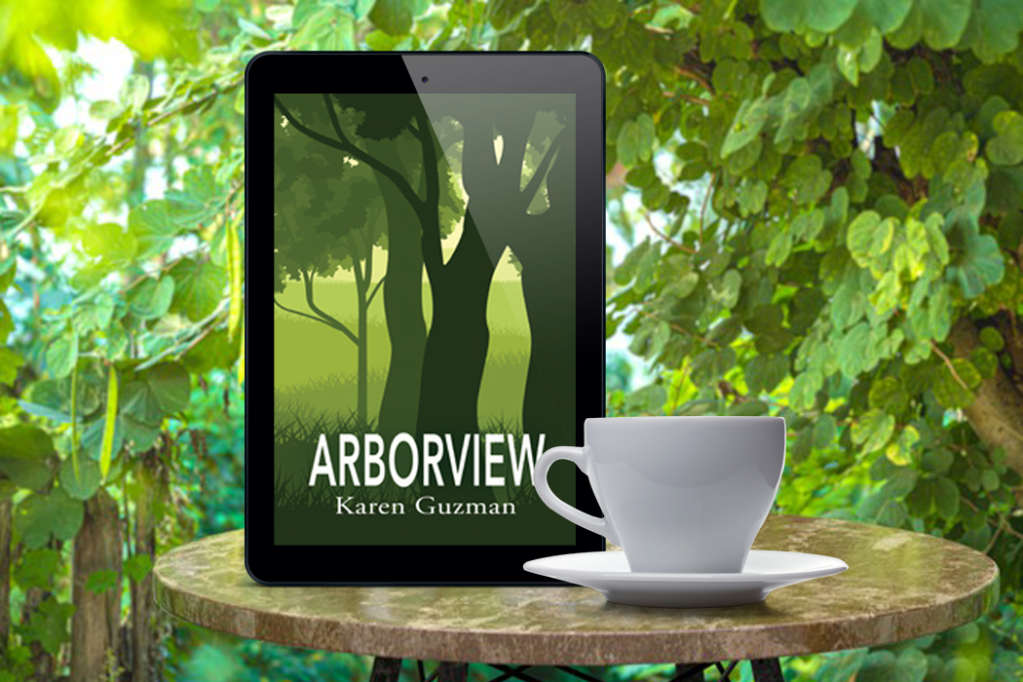—From Cathy
Hello all!
Here’s another post from the sessions Karen and I attended at the Association of Writers & Writing Programs (AWP) last month in Philadelphia. Sorry for the delay, but as you can see, this post is massive and took a while to assemble. It combines two sessions we attended on short story collections—writing them, organizing them, submitting them.
Enjoy!
“The stories I connected to the most emotionally were the ones I put in my collection. They had to make the hair on the back of my neck stand up.“
Session: Publishing Your First Story Collection
Panelists: Jen Fawkes, Caroline Kim, Matthew Lansburgh, Rachel Swearingen; Moderator: Kristina Gorcheva-Newberry
Panelists started by talking about their own collections (titles listed at the end of this post). Swearingen said she wrote her collection over a 10-year period. Kim wrote hers over 20 years, sent it directly to about 30 book contests, and got 17 straight rejections. An agent took Gorcheva-Newberry’s novel but wouldn’t take her collection, so she sent it out herself to contests.
Below are random quotes from throughout the session.
On creating and organizing collections:
- Linked collections and “novel-in-stories” are all the rage right now.
- Collections need to be a cohesive whole, there should be an arc, a through-line, in the collection.
- There are different types of linked stories: reappearing characters, stories that are thematically linked, stories that share the same setting. Or you can get to know a single character better over the course of the stories.
- You can start with the youngest protagonist and have them get older. Or have a theme. The stories I connected to the most emotionally were the ones I put in my collection. They had to make the hair on the back of my neck stand up.
- Have a belief in your stories rather than an idea of publication. Mine is a mix of a novella, average stories, and “quick bites.” I put the most emotional stories up front, the more cerebral ones later. Half is flash fiction, half is full length. I placed them in order of one long, then one short, then one long.
On publishing a collection:
- To sell a short story collection, it is critical that you also have a novel in progress or a really strong idea for one (the panel of agents emphasized this as well).
- Do not fabricate some kind of forced link between stories in your query letter, The links have to be organic and real.
- Stop thinking of stories as being so precious—don’t hold on and keep working on a story forever. Send it out and put that energy into the next one.
- If you get advice on how to do a revision, take it. Don’t give up!
- Remember what excited you about writing in the first place. Keep that excitement up while you’re in the midst of trying to publish.
- To get over a rejection, get yourself excited about a new work in progress.
On the writing process:
- I’ve just been playing lately. The world is so heavy right now that I had to get back to reinvention. When I’m stuck, I print out old stories, cut them up, put the pieces in a sack, and throw them on the floor. When I put the pieces back together randomly it usually helps me make something new emerge.
- I don’t sit and make myself write. Something in life happens and then I write about it. I work on multiple pieces simultaneously, so if I get stuck I can move on with something else.
- I always have three to four stories I want to write, so I keep going back to those. But I love writing new stories. I’ll take a month and write 500-1,000 words of a new story each day. Then I put that story aside for 3-6 months. When I look at it again, I can see where it was leading, where it was supposed to go.
- I start a project and doggedly cling to it like a pit bull! I often begin a story with a headline from the news. No plan. I just write and let it take me where it goes.
- Writing a novel is like a marriage—long and slow. A short story is like a kiss, a peck—hot and passionate.
On writing in general:
- Lean into who you are. As Toni Morrison said, “Write the book that you want to read.”
- Remember that a novel is like math, where you’re told to show your work—you have to fill in all the steps. But “a short story is a fury of small punches,” as Raymond Carver said.
Think of a collection as a constellation. Each story is a point of light and each is its own thing, but together they create something larger.
Session: Building a Bridge: The Linked Story Collection & The Novel
Panelists: Jonathan Escoffery, Asako Serizawa, Sidik Fofana; Moderator: Cara Blue Adams
- Serizawa: The ways to build continuity in a collection are untapped. My book spans 100 years and uncovers intergenerational elements that wouldn’t work in a novel. It is more of a mosaic of independent pieces that, put together, make a big picture.
- Escoffery: I wrote a story for my MFA thesis that introduced me to characters that would be in my collection. I set out to write a novel with standalone chapters that were stories, but that became more of a headache. So I eventually wrote some linked stories and then it became one family with different stories. There is a house that’s sinking in this book, and all the characters wonder in each story, will that house sink? I actually first wrote a query that explained what the book was about, and then wrote my book to fit that query!
- Adams: I unknowingly collected stories about art—painters, visual artists—and stories about violence and landscapes. When I put these together and shared them with readers, two said some of the female characters were similar and maybe they should be the same character. Some stories were short, some long, some realistic, some fabulous.. It was too incohesive. I cut and rearranged and, ultimately, the book came to be about loss—one woman who lost different things throughout her life.
- Lorrie Moore said a short story is an end-based form. The ending should startle, surprise, something should click into pace. A novel is the opposite—something to keep us reading, and the ending need not be spectacular. A linked novel needs to do both.
- A novel has plot parts, narrative arc, character development, etc. A collection can rebel against these parts and still create a larger shape.
- Think of a collection as a constellation. Each story is a point of light and each is its own thing, but together they create something larger. It has a shape. What is your container? What belongs within it?
- A story collection is like a record album with each story a song. Or a TV series with central themes and characters but all different stories.
- Authors get hung up on point of view and other factors when determining the order of stories. But the main things readers want to know are Who is the main character? and Where is the story set?
On reading for inspiration:
Read lots of collections! Especially ones that are both loosely and tightly connected to see how you want to approach yours.
Below is a list (dang, it’s big!) of specific collections these writers noted (and I’ve included their own collections as well):
- Outside is the Ocean by Matthew Lansburgh—Iowa Short Fiction Award (linked story collection)
- The Prince of Mournful Thoughts by Caroline Kim—2020 Drue Heinz Literature Prize winner (exploring humanity through the Korean diaspora)
- Mannequin and Wife (magical realism) and Tales the Devil Told Me (reimagined villains) by Jen Fawkes—2020 Press 53 Fiction Award
- How to Walk on Water by Rachel Swearingen—2018 New American Press Prize
- What Isn’t Remembered by Kristina Gorcheva-Newberry—2020 Prairie Schooner Book Prize
- You Never Get it Back by Cara Blue Adams—John Simmons Short Fiction Award (same character who moves around the world)
- Inheritors by Asako Serizawa—2021 PEN/Open Book Award and Story Prize Spotlight Award (stories span over 100 years of a Japanese family’s history, beginning in 1868 and emerging into a future set in the 2030s)
- Stories from the Tenants Downstairs by Sidik Fofana (tight-knit group of characters who all live in the same Harlem high-rise)
- If I Survive You by Jonathan Escoffery (linked stories about a Jamaican family that moves to Miami)
- Citizen by Claudia Rankine—LA Times Book Prize (mixed genre book—poetry, essay, fiction)
- The Women of Brewster Place by Gloria Naylor (novel-in-stories)
- A Visit from the Goon Squad by Jennifer Egan (novel-in-stories)
- We the Animals by Justin Torres (novel-in-stories)
- “Only Collect” by Peter Ho Davies (essay on writing a story collection)
- Lost in the City by Edward P. Jones (lives of African Americans in Washington, DC)
- Half Gods by Akil Kumarasamy (linked stories of two brothers named after demigods)
- The Heartsick Diaspora by Elaine Chiew
- The Things They Carried by Tim O’Brien
- These Ghosts Are Family by Maisy Card
- There There by Tommy Orange
- Winesburg, Ohio by Sherwood Anderson
- The Secret Lives of Church Ladies by Deesha Philyaw
- Jesus’ Son by Denis Johnson
- 13 Ways of Looking at a Fat Girl by Mona Ward
- Cities I’ve Never Lived In by Sara Majka



















